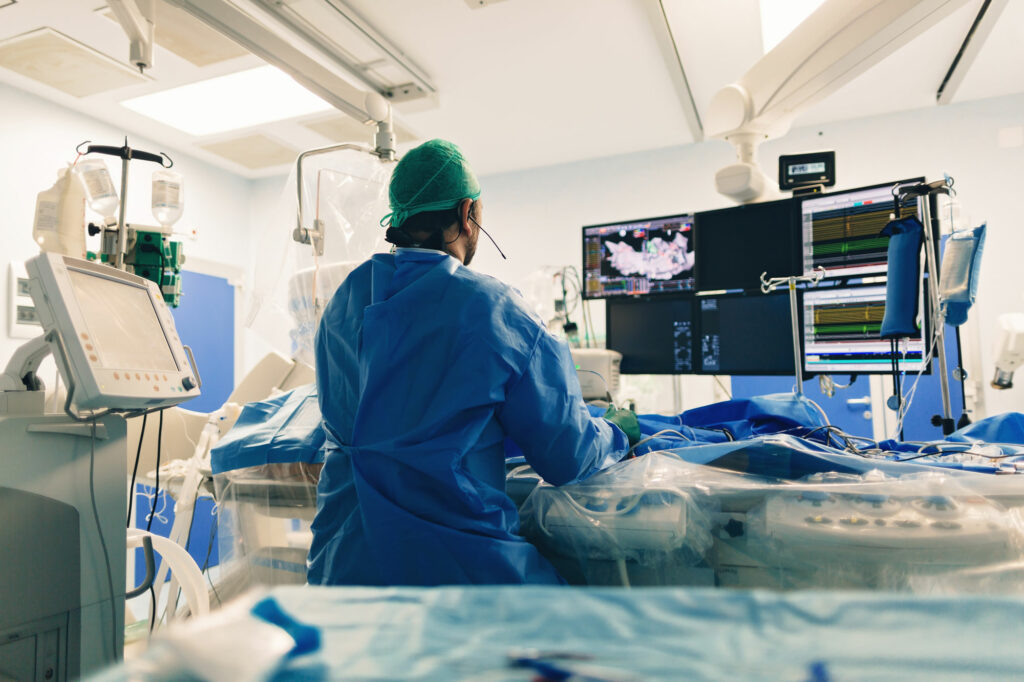Electrophysiology study, also known as invasive cardiac electrophysiology, are a series of tests that allow the electrical activity of the heart to be examined and this can be used by cardiologists to create a very detailed map of how the impulses move in each heartbeat of the patient’s heart.
What is a cardiac arrhythmia?
Cardiac arrhythmias are disturbances in the heart rhythm that can occur when the electrical impulses that coordinate the heartbeat do not work correctly, causing a faulty signal that results in tachycardia (beat too fast), bradycardia (beat too slow) or a mix of both.
An electrophysiologist is a cardiologist who specializes in the electrical system of the heart, through special training in heart rhythm disorders.
Through the electrophysiology study, electrical signals are used to identify the type of arrhythmia through a cardiac catheterization process with the introduction of a tube, called a catheter, into an artery in the leg that reaches the heart.
The catheter allows electrical signals to be sent to the heart, which will cause a cardiac arrhythmia and the cardiac electrophysiologist will record the place of origin.
What is checked in an electrophysiology mapping and ablation study?
During this study, different tests can be performed, depending on the specific condition of each patient, as well as their general health. The cardiologist may:
- Baseline value. Sensors on the catheter record the initial electrical activity in different areas of the heart.
- Send signals. Through the catheter, signals will be sent to different sections of the heart to find that it beats faster or slower to find the causes and origins of arrhythmias.
- Medicine administration. Certain drugs can be administered through the catheter directly into the heart, which will block or slow down the electrical activity in a certain area.
- Heart murmur. Process used to determine the best location for cardiac ablation to treat an irregular heartbeat.
- Cardiac ablation. If necessary, this procedure can be performed during the electrophysiology study. Using special catheters, heat or cold can be applied to different areas of the heart, producing scar tissue that blocks irregular electrical signals and restoring normal heart rhythm.
At the ABC Medical Center’s Cardiovascular Center, we can provide you with specialized care on electrophysiology studies or others. Contact us!
Fuente:
https://medlineplus.gov/spanish/ency/article/003867.htm
https://fundaciondelcorazon.com/informacion-para-pacientes/metodos-diagnosticos/estudio-electrofisiologico.html
https://www.mayoclinic.org/es/tests-procedures/ep-study/about/pac-20384999



